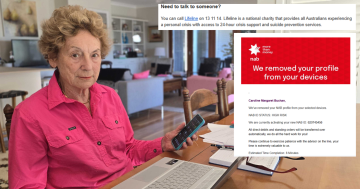 South Australians seeking love are being urged to listen to their heads as well as their hearts following a spike in dating and romance scams revealed by the Australian Competition and Consumer Commission’s (ACCC) Scamwatch.
South Australians seeking love are being urged to listen to their heads as well as their hearts following a spike in dating and romance scams revealed by the Australian Competition and Consumer Commission’s (ACCC) Scamwatch.
Deputy Chair of ACCC, Delia Rickard said Scamwatch data showed Australians reported losing a record $56 million last year, an increase of 44 per cent.
Ms Rickard said Scamwatch received over 3,400 reports about dating and romance scams in 2021, including many from people concerned about a family member caught up in a scam.
She said losses to scams were likely to be much higher than reported, as ACCC research revealed only around 13 per cent of scam victims reported to Scamwatch.
“Romance scammers play on emotional triggers to take advantage of victims,” Ms Rickard said.
“They often use ‘love bombing’ techniques, such as professing love and affection very quickly, to try to influence victims.
“The scammer will then come up with elaborate stories asking the intended target to send money, gifts or financial information.”
Ms Rickard said another variation of the scam was called ‘romance baiting’, which saw scammers first establish a connection on a dating app and then offer to show the victim how to invest, often in cryptocurrency, “turning the romance scam into an investment scam”.
“Scammers can come up with endless reasons to try and convince you to send money,” she said.
“If you start to feel pressured by your admirer, stop communicating with them.”
The Deputy Chair said another red flag to look out for was when scammers provided constant excuses as to why they could not meet in person, or use the video function in apps.
To protect themselves from scams, Ms Rickard recommended people never send money or give personal or financial information to someone they had only met online; think very carefully about taking investment or financial advice from someone on a dating app; and do an internet search with the name or photo of their love interest, or some of the phrases they had used, to try to identify if it was a scam.
She advised anyone who thought they may have been scammed to contact their bank or financial institution as soon as possible and contact the platform on which they were scammed to inform them of the circumstances of the scam.
Anyone experiencing emotional distress about their experience with a scam can access support through Lifeline on 13 11 14.











